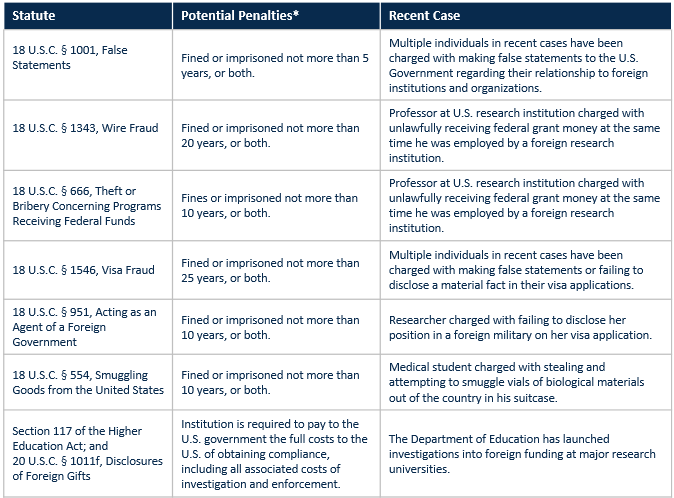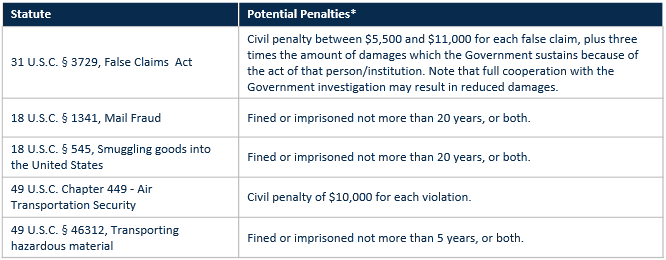Insights
Foreign Influence: Knowing the Statutes
Why Foreign Influence Matters
As tensions between the U.S. and various foreign governments increase, accusations of academic espionage by foreign-supported researchers at U.S.-based research institutions are on the rise. The NIH, NSF, DOE, and other agencies are increasingly warning institutions of researchers who have not disclosed foreign associations in compliance with grant funding regulations and other laws. The government continues to initiate enforcement actions and we expect this to increase in frequency and scope during the coming months.
As a result, research and academic institutions in the U.S. need to be ever more vigilant to mitigate brand risk, the loss of federal funds, intellectual property assets and exposure to enforcement actions.
Statutes Used In Matters To Date
The U.S. Government has used a variety of statutes as the basis to bring charges against individuals and institutions for improper foreign influence in government-funded research. For example:

Additional Statutes That Have Been Cited By The Authorities
The U.S. Government has indicated that additional statutes may be used as the basis to bring charges against individuals and institutions for improper foreign influence in government-funded research, including:

*Actual penalties can vary based on the specific offense and whether it implicates other sections of the U.S. criminal code.